What is best teeth bleaching gel ?
- Introduction: Why finding the best teeth bleaching gel matters
- Problem — yellowing teeth and confusing product choices
- Agitation — risks of choosing the wrong whitening gel
- Solution — what this guide provides
- Definition and importance: What is a teeth bleaching gel and why it matters
- What is a teeth bleaching gel?
- Why the choice of bleaching gel is important for results and safety
- Core principles and types: How teeth bleaching gels work and their main categories
- Active ingredients: hydrogen peroxide vs. carbamide peroxide
- How peroxide concentration affects speed and strength
- pH, stabilizers and formulation matters
- Main product types for teeth bleaching gel
- Key decision criteria: How to judge the best teeth bleaching gel
- 1. Active ingredient and concentration
- 2. Clinical evidence and independent testing
- 3. pH, stabilizers and formulation stability
- 4. Desensitizing ingredients and sensitivity control
- 5. Application method and fit—tray compatibility
- 6. Safety, certifications and manufacturer reputation
- 7. Packaging, shelf life and sample availability
- 8. Cost-effectiveness and return on results
- Practical comparisons: Which gel type fits your needs?
- Best teeth bleaching gel for home users (convenience + safety)
- Best gel for quick professional results
- Best gel for touch-ups and portability
- Why manufacturer choice matters: Supplier selection and customization
- Manufacturer credentials and product customization
- Packaging, quality control and after-sales support
- Top practical recommendations: How to pick and use the best teeth bleaching gel
- Choosing the right product
- Using the gel safely
- Maintenance and follow-up
- Conclusion: Choosing the best teeth bleaching gel with confidence
- Summary of core points and actionable next steps
- How Double White supports quality whitening solutions
Introduction: Why finding the best teeth bleaching gel matters
Problem — yellowing teeth and confusing product choices
Stained or discolored teeth are a common cosmetic concern. When searching for the best teeth bleaching gel, consumers face an overwhelming market of at-home kits, professional-strength formulas, whitening strips and pens. Many buyers don’t know which ingredients or concentrations actually deliver fast, lasting results without excessive sensitivity.
Agitation — risks of choosing the wrong whitening gel
Picking an inappropriate bleaching gel can cause little improvement, increased tooth sensitivity, gum irritation, or wasted money. Low-quality gels may be unstable, ineffective, or lack clinical validation. This uncertainty keeps many people from trying whitening treatments that could safely restore a brighter smile.
Solution — what this guide provides
This article explains what the best teeth bleaching gel is made of, how bleaching gels work, the main product types (strips, tray gels, pens, professional gels), and the objective criteria to judge quality. It also shows what to look for in a supplier and gives practical recommendations so you can choose a gel that delivers visible results with acceptable comfort.
Definition and importance: What is a teeth bleaching gel and why it matters
What is a teeth bleaching gel?
A teeth bleaching gel is a topical, peroxide-based formulation applied to teeth to oxidize and break down colored molecules inside tooth enamel and dentin. The most common active ingredients are hydrogen peroxide and carbamide peroxide (which releases hydrogen peroxide when it decomposes).
Why the choice of bleaching gel is important for results and safety
The best teeth bleaching gel balances efficacy (visible whitening) with safety (low irritation and acceptable sensitivity). Concentration, pH, stabilizers, and added desensitizing agents determine how well a gel whitens and how comfortable the process is. Choosing the right product reduces complications and improves satisfaction.
Core principles and types: How teeth bleaching gels work and their main categories
Active ingredients: hydrogen peroxide vs. carbamide peroxide
Hydrogen peroxide (H2O2) is the primary bleaching molecule; it penetrates enamel and oxidizes chromogens (staining molecules). Carbamide peroxide (also called urea peroxide) is a compound that breaks down into hydrogen peroxide and urea; a 10% carbamide peroxide gel yields roughly 3–3.5% hydrogen peroxide over time. Understanding the active form helps compare product strengths.
How peroxide concentration affects speed and strength
Higher hydrogen peroxide concentrations typically deliver faster whitening but increase risk of sensitivity and gum irritation. Professional in-office gels often contain 25–40% hydrogen peroxide under controlled conditions; at-home gels typically range from about 3% to 10% hydrogen peroxide (or the carbamide peroxide equivalent). The “best” concentration depends on desired speed, supervision, and tolerance for sensitivity.
pH, stabilizers and formulation matters
pH affects enamel safety and peroxide stability. Gels formulated at neutral or slightly acidic pH may act differently; reputable manufacturers include stabilizers, chelating agents, and buffering systems to maintain peroxide effectiveness while minimizing enamel demineralization. Viscosity and delivery (gel thickness) also determine how well the product stays on the tooth surface.
Main product types for teeth bleaching gel
- Tray whitening gels: Applied to custom or boil-and-bite trays, delivering controlled contact between gel and tooth surfaces. Common for at-home, dentist-supervised whitening.
- Whitening strips: Thin plastic strips with peroxide gel adhered to the tooth surface. Easy to use, good for mild-to-moderate stains.
- Whitening pens and brushes: Small applicators for spot treatments or touch-ups; lower peroxide concentration and limited coverage.
- Professional in-office gels: High-concentration hydrogen peroxide applied by dental professionals, sometimes with light activation, for rapid whitening.
Key decision criteria: How to judge the best teeth bleaching gel
1. Active ingredient and concentration
Check whether the gel lists hydrogen peroxide or carbamide peroxide and the percentage. For at-home whitening, look for an evidence-based balance—many effective OTC gels use 10%–22% carbamide peroxide (≈3%–7% H2O2) or 3%–10% hydrogen peroxide. Higher concentrations can work faster but require professional oversight.
2. Clinical evidence and independent testing
Choose gels that cite clinical studies, in-vitro data, or third-party testing. Peer-reviewed evidence or dentist endorsements increases confidence that the formula produces measurable whitening without unacceptable side effects.
3. pH, stabilizers and formulation stability
Gels should indicate formulation stability and pH control. Stable peroxide gels maintain potency during storage and use. Packaging that protects from light and air (e.g., single-dose syringes, opaque tubes) helps preserve effectiveness.
4. Desensitizing ingredients and sensitivity control
The best teeth bleaching gel often includes or is compatible with desensitizing agents such as potassium nitrate, fluoride, or nano-hydroxyapatite. These reduce transient tooth sensitivity, a common side effect of peroxide bleaching.
5. Application method and fit—tray compatibility
Gels designed for custom trays or well-fitting boil-and-bite trays provide even contact with teeth and reduce gum exposure. Strips and pens can be convenient but may not reach interproximal areas as thoroughly as tray-based gels.
6. Safety, certifications and manufacturer reputation
Look for manufacturers that follow Good Manufacturing Practice (GMP), ISO standards, or hold dental/medical device certifications where applicable. A credible supplier should offer material safety data sheets (MSDS) and batch traceability. Reputation and years of R&D in oral care matter—especially if you need custom formulations or bulk supply.
7. Packaging, shelf life and sample availability
Peroxide gels lose potency if exposed to air or light. Single-use syringes, sealed cartridges, or amber tubes extend shelf life. If you’re buying for retail or clinic use, suppliers that provide free samples and customized packaging (brand labeling, private label options) let you test product compatibility and market it professionally.
8. Cost-effectiveness and return on results
Compare unit cost with expected number of treatments and typical whitening longevity. An inexpensive gel that needs reapplication often may cost more over time than a slightly more expensive, stable formulation that delivers reliable results in fewer applications.
Practical comparisons: Which gel type fits your needs?
Best teeth bleaching gel for home users (convenience + safety)
If you want safe, predictable at-home whitening with minimal supervision, choose a tray-based gel with 10%–16% carbamide peroxide (≈3%–6% H2O2) or an equivalent hydrogen peroxide concentration designed for nightly or daily wear. Look for desensitizing agents and a reputable manufacturer that offers sample trials and clear usage instructions.
Best gel for quick professional results
Dentists commonly use higher-concentration hydrogen peroxide (25%–40%) applied in-office for dramatic immediate whitening, often in 30–60 minute sessions. These require dental supervision and protective measures for gums and soft tissues.
Best gel for touch-ups and portability
Whitening pens and small gel applicators are practical for maintenance after a primary whitening course. They generally contain lower peroxide levels and are intended for short-term use rather than major shade changes.
Why manufacturer choice matters: Supplier selection and customization
Manufacturer credentials and product customization
When buying wholesale or private-label whitening gels, working with a supplier that combines R&D capability with regulatory compliance matters. Double White, as a professional teeth whitening kit supplier, emphasizes biotech R&D, strict scientific control and offers free samples and custom packaging—advantages for clinics and retailers seeking consistent, customizable formulas.
Packaging, quality control and after-sales support
Top suppliers provide batch testing, stability data, and flexible packaging options. They should support GMP-compliant production, provide MSDS and certificates of analysis, and offer technical guidance on formulation selection, storage, and instructions for use.
Top practical recommendations: How to pick and use the best teeth bleaching gel
Choosing the right product
Decide whether you want rapid in-office whitening or gradual at-home improvement. For most consumers seeking safety and convenience, a tray-based gel with 3%–7% hydrogen peroxide or the equivalent carbamide peroxide concentration offers an effective compromise between results and sensitivity.
Using the gel safely
Follow manufacturer directions and dentist recommendations: protect gums, avoid overfilling trays (less contact with soft tissue reduces irritation), limit session duration as advised, and stop use if prolonged pain or gum inflammation occurs. Incorporate desensitizing toothpaste or agents if you have sensitive teeth.
Maintenance and follow-up
Whitening is not permanent—diet, smoking and aging affect shade. Use touch-up kits or pens periodically and maintain oral hygiene. For significant restorations (crowns, veneers), consult a dentist because whitening affects natural teeth but not restorations.
Frequently Asked Questions (FAQ):What concentration of peroxide is safe and effective for at-home bleaching?Most effective and tolerable at-home gels use the equivalent of 3%–10% hydrogen peroxide (roughly 10%–30% carbamide peroxide). Lower concentrations work more gradually with less sensitivity; higher concentrations should be used under dental supervision.
Can teeth bleaching gel damage enamel?When used correctly and with neutral or saliva-buffered pH formulations, peroxide-based gels do not permanently damage enamel. Temporary demineralization can occur if products are overly acidic or overused; reputable formulations and professional guidance minimize risk.
How long until I see results with the best teeth bleaching gel?Many at-home gels show noticeable improvement within 1–2 weeks of regular use; professional in-office treatment can produce visible changes after a single session. Final whitening depends on initial stain severity, product concentration, and treatment duration.
Is sensitivity permanent after bleaching?No. Tooth sensitivity after whitening is usually temporary and resolves within days to weeks. Using desensitizing agents, lower concentration gels, and shorter wear times reduces the likelihood of prolonged sensitivity.
Are whitening strips better than tray gels?Strips are convenient and effective for mild stains, but tray gels generally provide more even coverage and better results for moderate to severe discoloration. Tray systems also limit gum exposure when fitted properly.
How should I choose a supplier for bulk or private-label bleaching gel?Evaluate R&D capability, manufacturing standards (GMP, ISO), product stability data, sample availability, customization options, and after-sales technical support. Suppliers that offer free samples and customizable packaging let you test market fit before large orders.
Do carbamide peroxide and hydrogen peroxide give different results?Both release the same active oxidizing species (hydrogen peroxide). Carbamide peroxide releases hydrogen peroxide over a longer period, making it suitable for overnight or extended wear; hydrogen peroxide acts faster and is commonly used in-office or in short at-home sessions.
Are there alternatives to peroxide-based bleaching gels?There are non-peroxide light-activated products and abrasive polishing pastes, but peroxide-based gels remain the most consistently effective for internal stain oxidation. Non-peroxide options may be preferred by those seeking lower sensitivity, but results are often less dramatic.
Conclusion: Choosing the best teeth bleaching gel with confidence
Summary of core points and actionable next steps
The best teeth bleaching gel is not a single product but the one that matches your goals: desired speed, sensitivity tolerance, application method and trust in the manufacturer. Focus on active ingredient (hydrogen peroxide vs carbamide peroxide), concentration, pH and formulation stability, clinical evidence, and reputable manufacturing standards. Tray-based gels strike a strong balance for at-home users, while in-office hydrogen peroxide gels deliver fastest results under dental supervision.
How Double White supports quality whitening solutions
For clinics, retailers and private-label brands, working with an experienced supplier that offers robust R&D, strict quality control, free samples and customized packaging accelerates product selection and market readiness. Double White emphasizes biotech development, rigorous scientific control and a broad product range (gels, strips, pens) to help professionals and consumers access effective, safe whitening solutions.
If you’re evaluating products, request sample syringes, verify stability and clinical data, and consult a dentist for personalized advice. Following these steps will help you identify the best teeth bleaching gel for safe and satisfying whitening results.
Recommended for you
How Do Teeth Whitening Strips Work? | Double White
Teeth Whitening Business Requirements in Philadelphia | Double White
Teeth Whitening Strips Not Working? Discover Solutions - Double White
Should You Brush After Whitening Strips? | Double White
About Product Choice
What types of teeth are your products suitable for?
Our products are suitable for most tooth types including regular, yellow and lightly pigmented teeth. However, for severely discolored teeth or special dental conditions, please consult your dentist before making a choice.
What are the differences between the different products?
Different products may have slightly different usage methods, whitening effects, and applicable groups. Please choose according to your needs and preferences.
About Logistics
Does it support express delivery?
Yes, we support express delivery services. You can choose different delivery methods according to your needs, including ordinary express delivery and expedited express delivery.
About Customized Services
Can you provide personalized customization services?
Yes, we can provide personalized customized services according to your needs and requirements, including product specifications, packaging and private labeling, etc.
Is there a minimum order quantity requirement for customization services?
Customized services may have minimum order requirements based on your specific needs and product type, please consult our sales team for details.

HP Teeth Whitening Alcohol-free Strips HPNA-01
Discover Double White’s HP Teeth Whitening Alcohol-free Strips HPNA-01, the best teeth whitening strips designed for a brighter smile without irritation. Alcohol-free formula ensures gentle yet effective whitening. Achieve professional results safely and easily at home with these top-rated teeth whitening strips.

HP Teeth Whitening Alcohol-free Strips HPNA-02
Double White’s HP Teeth Whitening Alcohol-free Strips HPNA-02 offer effective, gentle whitening without alcohol. These best whitening teeth strips deliver visible results, making them the good teeth whitening strips choice for a brighter smile. Try our whitening strips for teeth today!

Hydrogen Peroxide Residue Free Teeth Whitening Strips RFHP01
Double White Hydrogen Peroxide Residue Free Teeth Whitening Strips RFHP01 deliver the best quick teeth whitening results without residue. These best teeth whitening strips offer safe, effective brightening for a confident smile. Experience one of the best teeth whitening products today.

Hydrogen Peroxide Residue Free Teeth Whitening Strips RFHP02
100% tooth surface residue-free teeth strips represents the latest white teeth technology. This new product has strong adhesion on the teeth, but when peeled off, no gel-like substance remains on the tooth surface, leaving the teeth bright. Like new, no cleaning required.
Send us your inquiry
Reach out to us through the form below or via the contact information provided.
Our dedicated team is committed to providing prompt and personalized responses to all your queries.
Please fill out the fields above with your full name, email address, and comment.
Copyright © 2025 Double White All Rights Reserved. Designed by gooeyun

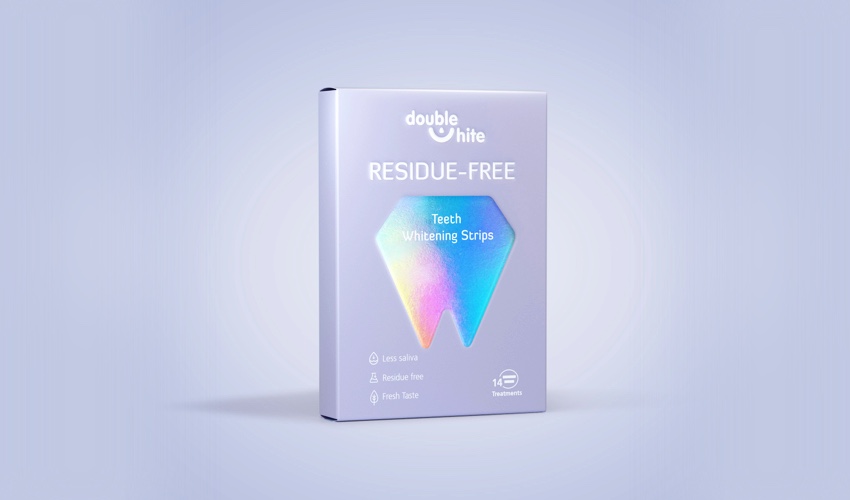
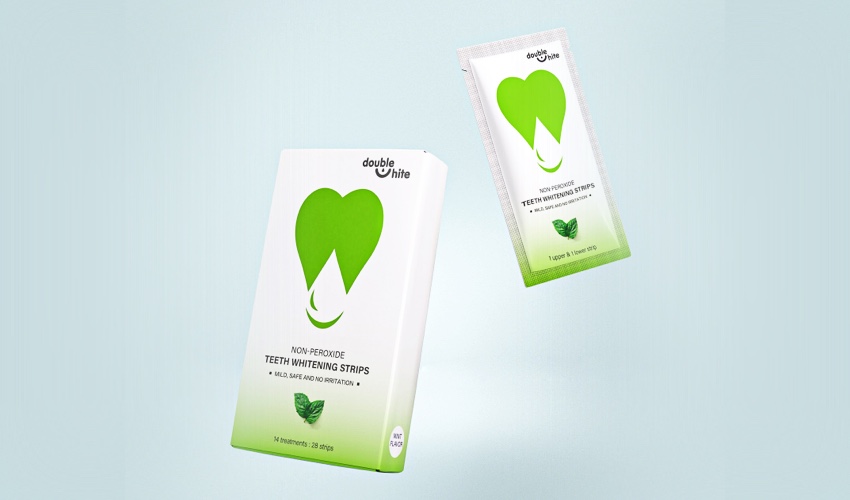
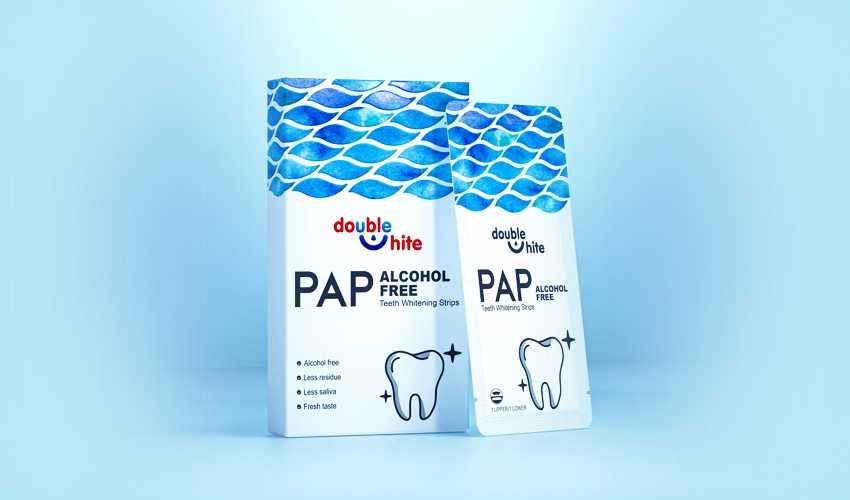
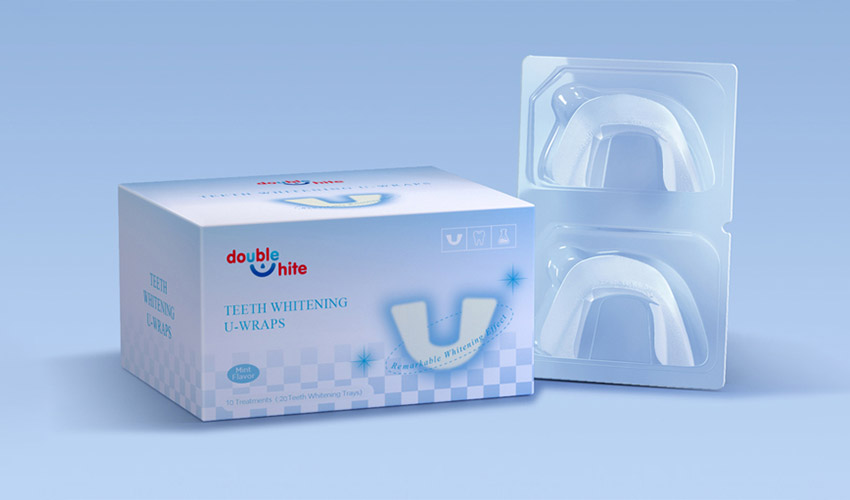
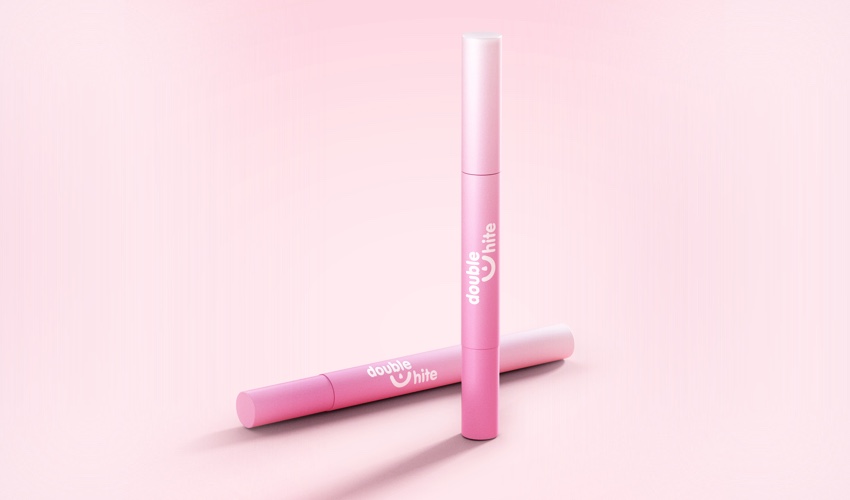
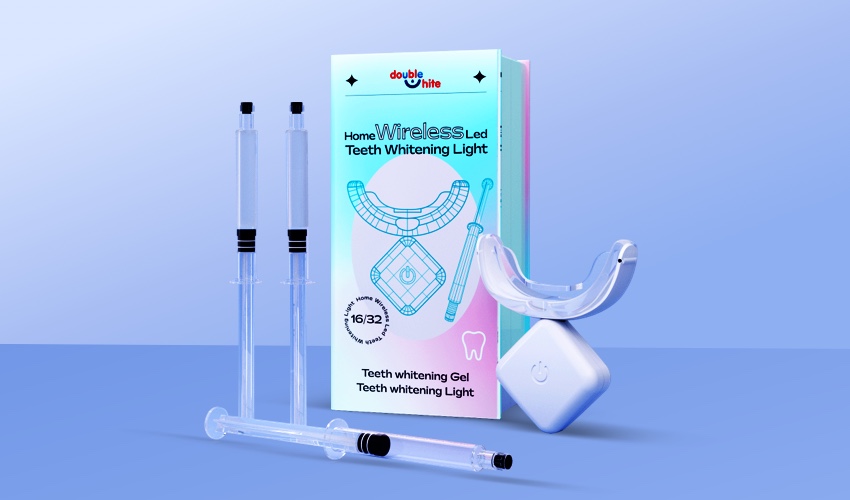
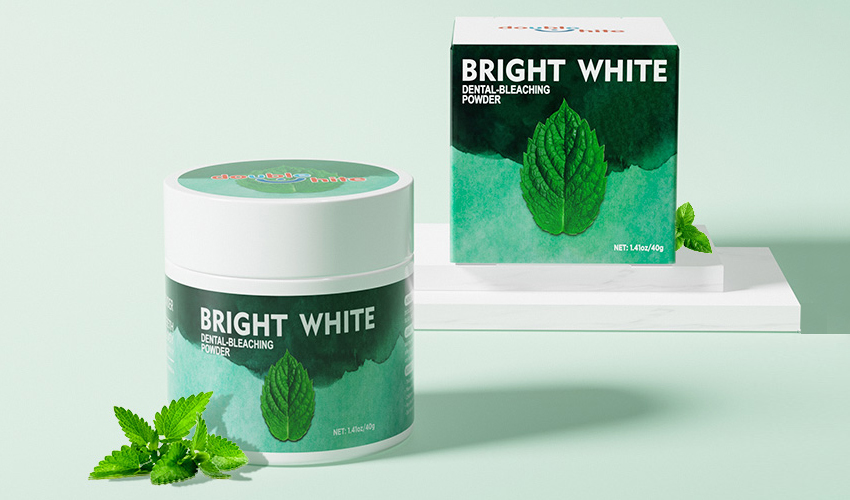






Whatsapp: +8615920313473
cndoublewhite
Doublewhite
doublewhitecn
cndoublewhite
cndoublewhite